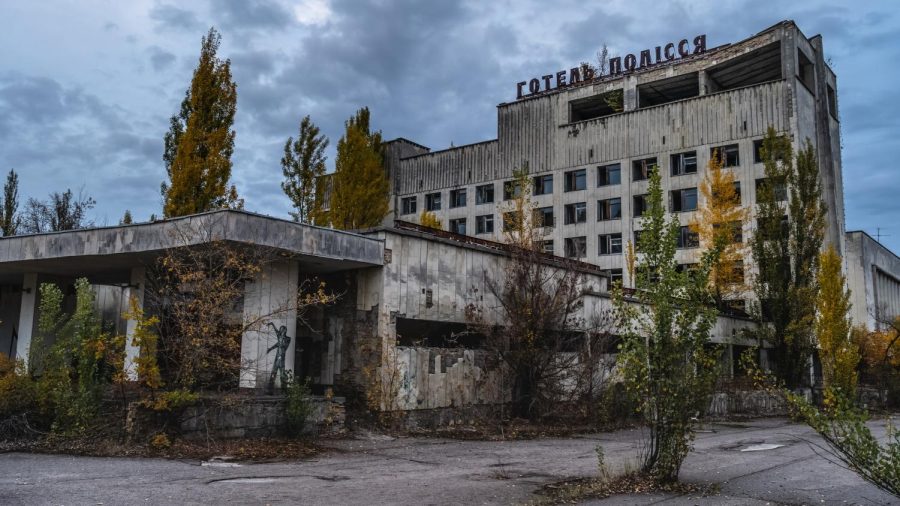Russian-Ukranian War: Conflict in Chernobyl
Abandoned building near the Chernobyl nuclear power plant.
March 3, 2022
On April 26, 1986, the Chernobyl Nuclear Power Plant in Ukraine had a faulty fourth reactor which resulted in a detrimental nuclear disaster.
At least 5% of the uncontrolled radioactive core leaked into the surrounding environment. A total of 49,000 residents had to be evacuated and although there were only 31 immediate deaths, the National Research Center for Radiation predicts there are between three-five million Chernobyl victims today.
“The Chernobyl disaster is the largest anthropogenic disaster in the history of humankind,” Viktor Sushko, a deputy director general NRCRM, said.
Even today, there is still a chance for resurfaced radioactivity from the plant. However, areas with in the 30 km exclusion zone have become habitable once again, and 187 communities continue to thrive.
But during the week of Feb. 21 – 28, Ukraine experienced another disaster. Russia launched an invasion on the Ukraine as to prevent the Ukrainian democracy from developing any further.
“This is an evil that has come to our land and must be destroyed,” Ukrainian President Volodymyr Zelensky said.
According to Zelensky, Russia has been targeting public services and structures, such as power plants, schools, and hospitals for the past week and half.
During the invasion, Russia has organized attacks on multiple cities such as Kharkiv, Kherson, and Bucha. As of Feb. 25, the Russian military has confirmed their control of Chernobyl.
That Friday morning, the State Nuclear Regulatory Inspectorate of Ukraine released a statement.
“The control level of gamma radiation dose rate in the exclusion zone were exceeded,” the statement said.
According to local experts, this increase of gamma radiation may have been due to Russia’s heavy use of military radios in the exclusion zone, rather than Chernobyl itself.
“The condition of Chernobyl nuclear facilities and other facilities is unchanged,” local experts said.
The body has explained that because of the Russian military’s presence in the exclusion zone, is it impossible to explain the change in radiation.
The radiation within the Exclusion zone is still safe, however the invasion is still unsafe. Information has surfaced than Russian forces have been holding Chernobyl staff hostage in order to keep the plant running and leveled.
“We are outraged by credible reports that Russian soldiers are currently holding the staff of Chernobyl facilities hostage,” white house press secretary Jen Psaki said. “[This hostage taking] is obviously incredibly alarming and greatly concerning.”
Along with the worry for the hostage citizens, Ukraine is closely examining the radiation release from Chernobyl.
“Our defenders are giving their lives so that the tragedy of 1986 will not be repeated,” Present Zelensky said on Twitter.
It is possible that if the artillery disrupts the facilities, radioactive dusk can be spread across both Ukraine and Belarus. Chernobyl’s involvement in the Russian Ukrainian war has further complicated Ukraine’s efforts against Russia.
The country hopes their Chernobyl recovery process is not set back, disrupted, or stopped by the Russian military invasion.
Sources:


